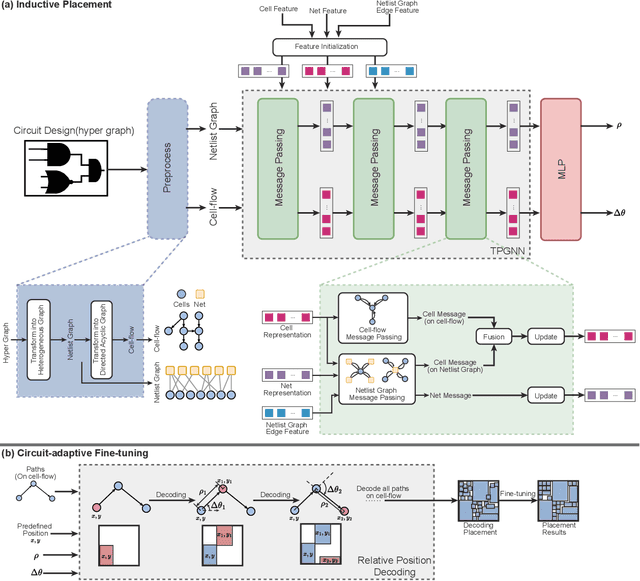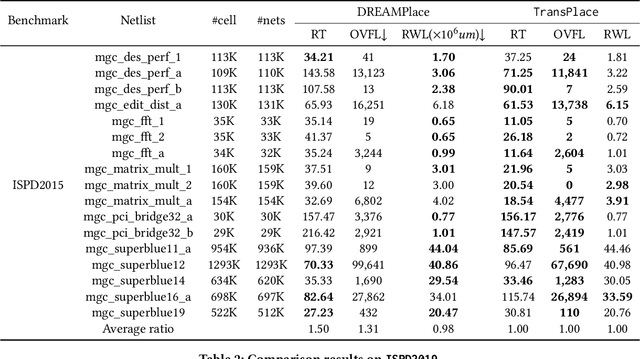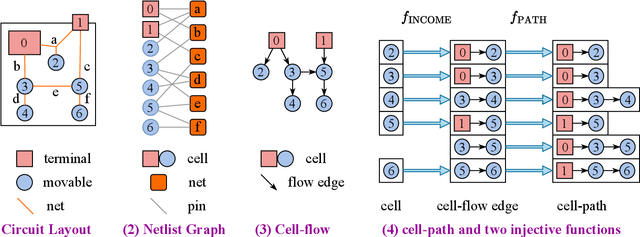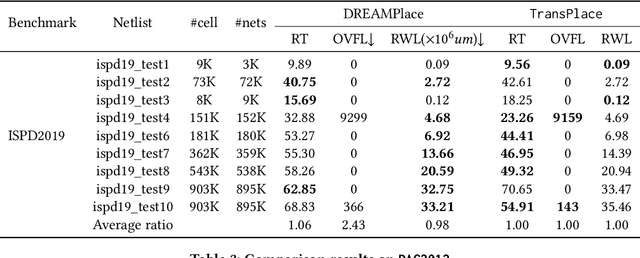Yunbo Hou
TransPlace: Transferable Circuit Global Placement via Graph Neural Network
Jan 10, 2025



Abstract:Global placement, a critical step in designing the physical layout of computer chips, is essential to optimize chip performance. Prior global placement methods optimize each circuit design individually from scratch. Their neglect of transferable knowledge limits solution efficiency and chip performance as circuit complexity drastically increases. This study presents TransPlace, a global placement framework that learns to place millions of mixed-size cells in continuous space. TransPlace introduces i) Netlist Graph to efficiently model netlist topology, ii) Cell-flow and relative position encoding to learn SE(2)-invariant representation, iii) a tailored graph neural network architecture for informed parameterization of placement knowledge, and iv) a two-stage strategy for coarse-to-fine placement. Compared to state-of-the-art placement methods, TransPlace-trained on a few high-quality placements-can place unseen circuits with 1.2x speedup while reducing congestion by 30%, timing by 9%, and wirelength by 5%.
RoutePlacer: An End-to-End Routability-Aware Placer with Graph Neural Network
Jun 04, 2024



Abstract:Placement is a critical and challenging step of modern chip design, with routability being an essential indicator of placement quality. Current routability-oriented placers typically apply an iterative two-stage approach, wherein the first stage generates a placement solution, and the second stage provides non-differentiable routing results to heuristically improve the solution quality. This method hinders jointly optimizing the routability aspect during placement. To address this problem, this work introduces RoutePlacer, an end-to-end routability-aware placement method. It trains RouteGNN, a customized graph neural network, to efficiently and accurately predict routability by capturing and fusing geometric and topological representations of placements. Well-trained RouteGNN then serves as a differentiable approximation of routability, enabling end-to-end gradient-based routability optimization. In addition, RouteGNN can improve two-stage placers as a plug-and-play alternative to external routers. Our experiments on DREAMPlace, an open-source AI4EDA platform, show that RoutePlacer can reduce Total Overflow by up to 16% while maintaining routed wirelength, compared to the state-of-the-art; integrating RouteGNN within two-stage placers leads to a 44% reduction in Total Overflow without compromising wirelength.
 Add to Chrome
Add to Chrome Add to Firefox
Add to Firefox Add to Edge
Add to Edge